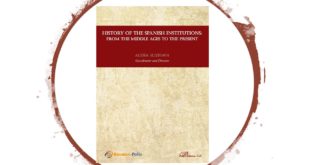Salazar is often paired with Franco as one of the «Iberian dictators,» but those with the most superficial knowledge of their histories understand that they were quite different. Franco began his regime as a complete military dictatorship, while Salazar developed his own authority within an existing military dictatorship for which he had been in no way responsible and which he transformed into a new political system. Down to 1961, at least, the military sometimes constituted his major political problem, in a manner totally different from the almost unconditional support enjoyed by Franco. The Spanish dictator developed a special relationship with Hitler, secretly signing the latter’s Tripartite Pact in 1940, while Salazar struggled mightily to preserve a genuine neutrality in World War II. Though the two were mutually supportive during the Spanish Civil War and again from 1942 on, during the period of the Spanish regime’s Axis temptation this was not the case. Franco ordered a plan for the invasion of Portugal to be drawn up at the close of 1940, though no steps were ever taken to implement it. Compared with his Spanish counterpart, Salazar was extremely hard-working, probably exceeding even Stalin in the amount of time and effort he dedicated to his duties. Though Franco had a sense of humor, his coldness was greater than that of Salazar, who showed a much more genuine charm on the personal level, when he cared to do so. Finally, Franco had a reputation for austerity, a quality which he exhibited in certain respects, but in other matters indulged in a pomp and vainglory that in certain periods verged on megalomania. The austerity of Salazar, by comparison, seems to have been absolutely genuine.
His regime exhibited a very slight similarity with the Pilsudski regime in Poland. Both were initially installed by military coups (much more bloody in the Polish case) and led to new political systems which were not fascist or single-party states but adaptations of the existing republican regime that introduced considerable authoritarianism, while maintaining a certain kind of parliamentary system. The differences, however, were more important. The Pilsudski regime was much more genuinely semi-liberal and semi-pluralist (at least so long as Pilsudski lived), the originator of the coup and the creator of the new system being one and the same person. Pilsudski was an ex-socialist who moved to the right-center, and he maintained firm control of the army. After he died in 1935, the system became completely military-led, and began to move, at least to some extent, toward fascism, though it might have survived almost as long as the Estado Novo, had it not been for foreign invasion.
The nearest thing to a twin was, of course, the Dollfuss-Schuschnigg regime in Austria, another small republic. Like its Portuguese counterpart, it was introduced by a bloodless coup, pseudo-legal in the Austrian case, though the new regime would soon have to face major insurrections, first by the Socialists and then by the Austrian Nazis. It made a more elaborate effort at achieving a corporative constitution and system than did the Estado Novo, and was more officially Catholic, though it later adopted more of the trappings of fascism than Salazar ever would. Like the Portuguese regime, it would probably have lasted for some time had it not been for the German invasion in March 1938, whose equivalent for Portugal Salazar very much feared.
The literature about the principal European dictators, both scholarly and journalistic, is, of course, enormous. The most extensive scholarly account of any of them is Renzo De Felice’s massive multi-volume study of Mussolini, while the lengthiest apologetic treatments are the six-volume work on Salazar by Franco Nogueira and the even lengthier multi-volume study of Franco by the noted medievalist Luis Suárez Fernández. Prior to the appearance of the new book by Meneses, much of the literature on Salazar in English and French has been apologetic in tone, the best of such accounts having been Hugh Kay’s Salazar and Modern Portugal (1970). There are of course publications in Portuguese that take a much more critical approach, such as those by Pedro Ramos de Almeida (1999) and Helena Matos (2003), but these are not systematic biographies.
In this new study, Ribeiro de Meneses has given us the most thorough and objective political biography of Salazar yet published. It is extensively researched in the Arquivo Oliveira Salazar and other primary collections, and is accompanied by a comprehensive bibliography of both primary and secondary works, in Portuguese and in other languages. The focus remains throughout on the public life and political activity of Salazar, so that the reader learns very little about his private life, even though this dimension was not altogether so barren and uninteresting as it has often been made to seem in many accounts. Nonetheless, it remains very hard to achieve accuracy regarding the more intimate details of his life. Meneses moves through this dimension relatively rapidly, making judicious use of such sources as Fernando Dacosta’s Máscaras de Salazar (1997) and Felícia Cabrita’s Mulheres de Salazar (1999), as well as other data and anecdotes.
The most thorough treatment is devoted to Salazar’s diplomatic activity, beginning in 1936. In this area the sources are relatively abundant, both in terms of Portiguese policy and that of the other powers, and the importance of the theme is obvious, particularly with regard to the decade 1936-45 and to the 1960s. Domestic politics and policies also receive considerable attention, though not in equivalent detail.
By contrast, the greatest weakness or limitation is the scant attention to finance and economics, the problems that gave Salazar his great opportunity and were always near the forefront of his concerns, even though sometimes they had to come second to political and international priorities. So few data are presented that the reader gains only a superficial understanding of the crisis of the late 1920s and of the achievements, as well as the limitations, of Salazar’s initial policies, crucial though this was for the creation of the Estado Novo. Later, Meneses points out in passing that the economic immobilism of the Estado Novo has been somewhat exaggerated, and mentions briefly the irony that it became necessary to liberalize economic policy and stimulate rapid growth in the 1960s in order to pay for the African war that had become the centerpiece of policy, though continued insistence on a balanced, or nearly balanced, budget meant that it must be war on the cheap.
The great strengths of the book are first its comprehensive political and diplomatic account, and, secondly, the objectivity of its presentation and analysis. Meneses makes a serious effort to play fair and generally succeeds. In many cases he presents two or more interpretations of a particular problem or policy, and then presents his own conclusion, almost unfailingly perceptive and balanced. All the other principal political figures of the regime, together with some of its main opponents, are given full biographical sketches in the footnotes, which are helpful in situating them more completely, though many of the ordinary footnotes are overly detailed and rather pedantic, and might well have been dispensed with.
One of the fundamental questions arising from a work of this sort concerns how much significant new information it yields and whether it presents a new understanding or interpretation. In this case, it cannot be said that the portrait which emerges from these pages is particularly novel, though it the book succeeds in presenting a certain amount of new information as well as a carefully informed perspective on the major problems and crises.
The Salazar which Meneses gives us is neither a fascist monster nor an altruistic self-abnegating patriot, but an ambitious and authoritarian leader with a very distinct point of view and a firm set of operating principles, though he could sometimes be very pragmatic in their implementation. Meneses points to the marked success of his early academic career as having given him firm trust in his talents. Salazar intended to make his mark almost from the beginning, as evidenced among other things by the fact that he changed his original name, Salazar Oliveira, to Oliveira Salazar, his mother’s Spanish name seeming more distinctive for someone who sought to play a public role.
Unfortunately, material on his early years in Christian democracy, as well as the first phases of his career in the late 1920s, is sketchy, so that the historian will probably never be able to follow exactly his thought processes as he abandoned a right-wing form of political Catholicism to embrace corporative authoritarianism under the revamped republican regime. (In similar fashion, it is hard to trace precisely the changes in Franco’s thought in the late summer of 1936 as its focus moved fairly rapidly from a kind of right-wing republic, possibly Portuguese-style, to a more radical dictatorship that would soon embrace a more Italian model.)
The Salazar presented in this book was convinced that he possessed the formula for the survival and stability of Portugal in the twentieth century in the only form that could sustain traditional culture, religion and historical identity, together with the empire. He was never the absolute dictator found in some other regimes, but had to placate and manipulate a variety of domestic elites. Once having mounted the tiger of authoritarianism, he found, like many before him, that he could not safely dismount, and was genuinely convinced that no one else could keep the system going. Even this was not quite right, since Caetano succeeded him for another six years, the Estado Novo having constituted a system of sorts.
These conclusions are not radically new findings, but Ribeiro de Meneses has given us a reasonably thorough, fair and well-researched account that stands as the best one-volume study of one of the two longest-lived dictators of the western world.
(Filipe Ribeiro de Meneses. Salazar. A Political Biography. New York: Enigma Books, 2010. Pp. xii, 641.)
- Oliveira Salazar
 Kosmospolis Revista digital de Historia, Política y Relaciones Internacionales kosmos-polis
Kosmospolis Revista digital de Historia, Política y Relaciones Internacionales kosmos-polis






